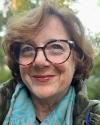Afram 318 A / English 318A
Black Literary Genres:
Global Black Drama & Performance
Prof. Catherine M. Cole
colecat@uw.edu (preferably send messages through Canvas)
MW 12:30-2:20
Communications Building, Room 326
Fulfills GE Requirements: Diversity (DIV), Arts and Humanities (A&H)
Office Hours:
M & W, 2:40-3:40PM, by appointment, in Padelford B435
Book appointment here: https://calendar.app.google/LoAZAUb9qotuGein7
Community Agreements: Our class created together community agreements, which can be found here (and with alternative format here.) Our class agreements emphasize respect for everyone's opinions, assuming good intent, listening with openness, bringing a spirit of inquiry, receptivity to feedback, and leading with grace. But sometimes things can happen in class that are hurtful or upsetting. The following google form is way to give feedback to Prof. Cole anonymously and let her know that something didn't go right with class: https://forms.gle/5YYsApsZ6WZfWbrq8
Description: This course explores the invention of cultural identities through Black drama and performance globally. Focusing on dramatic literature as well as live performance from multiple locations in the world, we will ask: How have Black artists in different times and places articulated cultural difference differently? What affinities of passion do they share? How and why do their articulations of identity diverge? Inspired by the groundbreaking transnational research of Nigerian literary scholar Tejumola Olaniyan, this class examines the relationship between generic forms and questions of power within differing social, cultural, and historical contexts.
A play by Wole Soyinka, written from Nigeria just fifteen years after his country attained independence, provides one perspective on Blackness and decolonization. Amiri Baraka / LeRoi Jones, writing in America at the height of the Black Power movement in New York and Newark in the 1960s and 1970s, gives another perspective on race, power, oppression, and the quest for liberation. The Black Arts Movement in the U.S.A., which Baraka helped found, “spoke truth to power.” Yet it was not known for elevating the truths of women. Playwright Ntozake Shange helped change this by bringing to the stage a new genre—the “choreopoem”—in which she represented gendered truths too often silenced by U.S. Black nationalism. Caribbean writer Derek Walcott, a self-described “mulatto of style” from St. Lucia, provides yet another perspective on the invention of Black cultural identity—a distinctly Caribbean view at the confluence of three languages: French Creole, English Creole, and English.
In addition to these four established writers, this course also analyzes four contemporary performing artists: Mamela Nyamza and Albert Ibokwe Khoza from South Africa, and Daniel Alexander Jones and Amara Tabor-Smith from the United States, thus providing fresh perspectives on how Black identities are being articulated in performances today in both the global North and South.
